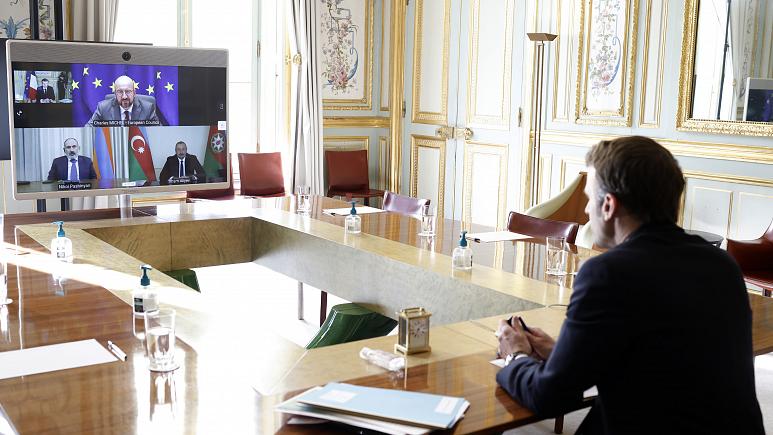Recently, leaders of the Republic of Azerbaijan and Armenia participated in an online conversation mediated by and with the presence of the French President Emmanuel Macron and President of the Council of Europe Charles Michel. During the talks, the two sides exchanged views on the current situation in the South Caucasus region, resolution of the existing humanitarian problems, as well as reduction of tensions on common borders of Armenia and the Republic of Azerbaijan.
Europeans have always been under the guardianship of the United States since World War II, and the United States has, in effect, sought to deprive Europe of the independent tools through its protectionist actions. In recent years, and especially during Donald Trump era, Europeans have realized that they have become increasingly at the forefront of international conflicts as a victim and a tool of Washington’s hegemonic actions due to the decline of American power during the transition period of international order.
The Brexit and, of course, Trump’s warnings to Europeans that they must pay for their own security may have taught European countries a great lesson in gaining independence from the United States and the idea of a “European club” for economic independence as well as formation of a “single European army” for military independence from the United States and NATO.
In the past 20 years, the United States not only has not protected Europe, but also used Europe as a means to achieve its end. According to European diplomats, the new US President Joe Biden will stop his predecessor’s aggressive rhetoric towards allies, but he is not expected to change the US message that Europe should be more involved in defending itself.
On the path to European economic independence from under the shadow of American guardianship, the issue of energy is vital. Europeans are always worried about escalating tensions between Russia and the United States, with about 50 percent dependent on Russian energy.
A clear example of this is the recent tension in Ukraine and the Europeans’ search for alternatives to Russian energy. Most Europeans have realized that if they do not pursue this path of political and economic independence, they will be caught in the hegemonic ambitions of the United States in the current transition period of international order.
With regard to this objective, the EU Energy Commissioner Kadri Simson traveled to the Republic of Azerbaijan in early February, amid escalating tensions between Ukraine and Russia, which is Europe’s main gas supplier, and Europe’s efforts to supply gas from other resources besides Russia.
Escalation of tensions between the West and Russia over Ukraine has raised concerns about the flow of Russian gas to Europe, prompting the European Commission to look for other alternatives to supply gas to the region. Following the trip, we are also witnessing the Europeans efforts to mediate between Baku and Yerevan to stabilize the South Caucasus. Certainly, existence of tension in the South Caucasus will also jeopardize the energy traffic route, and if Europe wants to use the Caspian energy, it must certainly ensure peace and stability in the South Caucasus.
On the other hand, after the collapse of the Soviet Union and discovery of rich oil and gas resources in the Caspian Sea, the Europeans had a special view of the region and their presence to influence the equations of the region dates back to the post-Soviet era.
After the collapse of the Soviet Union, the Europeans made great efforts that in the field of administrative and educational reforms of the newly independent republics liberalize their structures and prepare the ground for attracting countries in that region into the European structure.
Even in the bloody First Karabakh War, in which more than 35,000 people were killed and more than 800,000 in the disputed areas were displaced and forced to leave their country, Europe acted as a mediator, and through mediation of France and the Organization for Security and Cooperation in Europe (OSCE), and of course other mediating actors, paved the way for the temporary cessation of hostilities between Baku and Yerevan.
But the reason Europe is coming this time to mediate between Baku and Yerevan is certainly not ideological and not for liberalizing the two countries, but Europe’s only concern is to find a new energy supply market with the objective of gaining independence from the US guardianship. As mentioned, the Europeans’ move to mediate between Baku and Yerevan and presence of Pashinyan and Aliyev in an online meeting to stabilize the agreements which have been obtained comes at a time when Brussels knows that if it does not reach an agreement and tensions resume, it cannot rely on the energy of the Republic of Azerbaijan as it should.










0 Comments